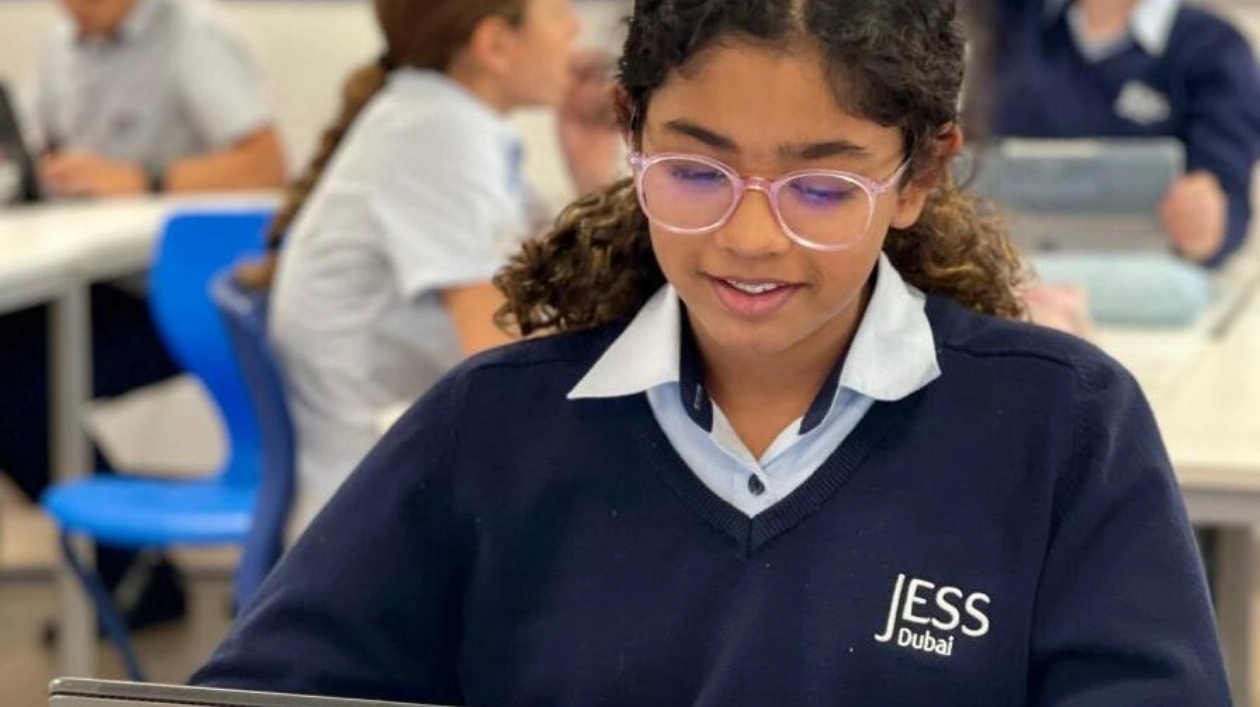School fundamentally revolves around empowerment and personal development. In the current era of the metaverse and artificial intelligence, it's unsurprising that these technologies are prominent on the educational agenda for the upcoming term.
AI's influence continues to be a central topic in educational discussions, and it's justified given its status as one of the most transformative innovations in learning since the internet. We are fortunate to be in the UAE, where innovation is encouraged and flourishes, enabling institutions like JESS to stay ahead and prepare students for a future where AI will be deeply integrated into their daily lives, more than we can currently imagine,” explains Steve Bambury, Head of Digital Learning & Innovation at JESS Dubai.
Generation Z and Alpha are true digital natives; a Statista survey in November 2022 revealed that nearly 40 percent of Gen Z in the US spend over four hours daily on social media. Younger children's heavy reliance on screens is becoming a concern for parents regarding their attention spans. Thus, the question arises: when is the appropriate time to introduce them to AI?
Grade 12 student Zuhair Mujeeb advocates for early introduction to AI as soon as children can comprehend the information. He states, “I use AI daily for various purposes, from research to project assistance. There's no reason to withhold AI from children due to fears of misuse, as they will inevitably encounter this knowledge. The sooner they learn about it and its appropriate and inappropriate uses, the better. I believe as soon as children start using devices in school, they should be educated on handling different AI.”
Bambury suggests considering the platforms' recommended age limits. “Schools must consider the appropriate age for students to interact with AI tools like Chat GPT or Copilot, which typically recommend users to be 13 years or older. It's crucial that both students and staff are taught how to craft effective prompts, as poorly designed ones can lead to low-quality, irrelevant, or inaccurate outputs from these emerging AI platforms,” he adds.
AI can enhance students' creativity by serving as a tool for presentations and even image generation. Mujeeb explains, “If I can't find a suitable graphic representation online, I might use AI to create exactly what I need—photos, videos, etc.”
Sohana Saith, a former student of Emirates International School, finds AI useful for a quick subject introduction but not a substitute for formal education. “I used chatGPT for quick revisions during my IB diploma, but it never matched the depth of school learning, especially in writing essays,” she recalls.
Personalization is another benefit, as James Lynch, Principal at Ambassador International Academy, notes: “We personalize learning experiences using AI to generate custom materials like quizzes and lessons tailored to each student's needs, enhancing both in-school and home learning. We also track student progress with AI, ensuring outstanding academic results.”
For some, AI simplifies research. Saith notes, “Typing a question gives a basic answer, helpful for an overview but not a replacement for teacher-led education.”
Educators initially wary of AI's popularity have adapted. Rashmi Nandkeolyar, Principal and Director of DPS Dubai, warns, “We now use AI to enhance documents and generate ideas, saving time and effort. However, users must be discerning, as poorly vetted work can result in gibberish.”
Bambury emphasizes ethical AI education: “We teach critical AI literacy skills alongside ethical use, ensuring academic honesty remains central to our AI education.”






